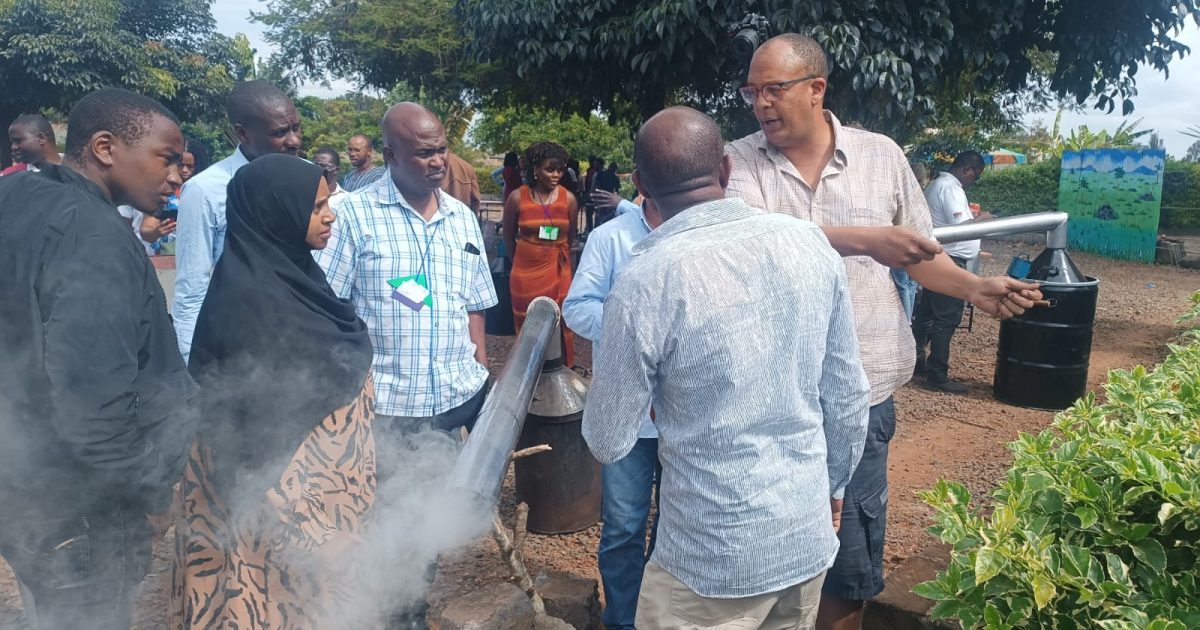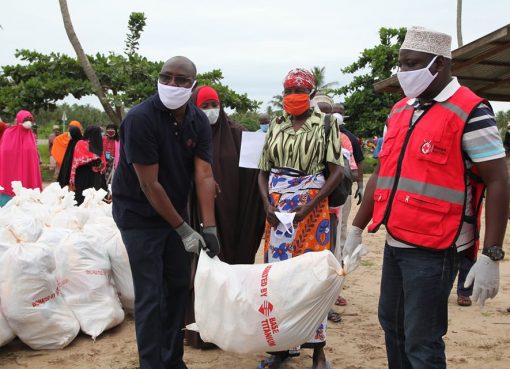Farmers have been urged to embrace the production and application of biochar on their farms to boost crop production while at the same time conserving the environment.
Experts and industry players who attended a one-week biochar academy organised by the International Biochar Initiative (IBI) and the Circular Bio-nutrient Economy Network (CBEN) to discuss how biochar production and application can be upscaled explained that biochar is a type of charcoal that is produced from organic material such as wood, crop residues, or manure in a low-oxygen environment through a process called pyrolysis.
Samuel Thuo, a CBEN official, explained that unlike regular charcoal, which is typically used as fuel, biochar is primarily used in soil amendment to improve soil health and carbon sequestration, because it retains high levels of moisture in the soil, increases the flow of air in the soil, adds carbon and increases the retention of nutrients such as of phosphorus and nitrogen, while allowing microbial activities that stimulate plant growth.
Thuo, who was speaking at a Murang’a hotel, said IBI and CBEN organised the biochar academy for stakeholders representing 40 companies from 14 countries around the globe so that they could take part in consultations and practical demonstrations on producing biochar using agricultural waste.
Thuo explained that farmers can use metallic drums or dig a hole where they can burn the residue, cover it with a metallic cover to put out the fire and then pour water on the burnt plant residue to produce biochar.
“This can be done using any crop, including maize and banana stalks. This waste, when left on the farm, produces methane gas which worsens climate change,” he said, noting that over 80 percent of plant matter remains on farms as waste post-harvest.
He explained that biochar can be used to make organic fertilisers by mixing it with manure.
“The fertilizer made from biochar and manure is organic, reduces the cost of farm inputs like manufactured fertilisers while making use of organic waste, which naturally produces greenhouse gases when left to rot by itself,” he said.
He noted that making biochar is not a new invention; therefore, they are only trying to teach farmers ways they can use the waste left after harvesting as a resource.
Thuo noted that using biochar to make fertilisers would ensure that farmers produce organic food that is healthier and attracts a high demand.
Luisa Marin, an executive director at IBI, said their mission as a nonprofit organisation is to make biochar safe for use and make it beneficial to the community and environment while creating income for producers.
Marin emphasized that biochar can be beneficial in several ways, including as a way of managing agricultural residue, amending soils and attracting carbon credits.
The organization, she said, has been organising numerous awareness forums globally but noted that the academy held in Murang’a was the first on the continent.
“We use this educational format to understand how biochar is being produced locally and identify training needs for the communities so we can come up with the resources to cater for them.”
Marin said that the convergence also aimed at finding the business development models for the physical market of biochar that will be tied to the carbon market.
She explained that biochar production is an ancient technique that has been traced as far back as 7,000 years ago in the Amazon and has been a common practice for many people when establishing kitchen gardens.
“Industrial production of biochar for agricultural and construction uses started about 15 years ago and five years ago, at a global scale, the voluntary carbon credit market developed the first biochar methodology to generate carbon credits through the production of biochar,” she said.
Marin explained that this led to the development of global standards by IBI that include laboratory tests to ensure it has minimal pollutants and contains the required organic carbon content.
“We’re inviting farmers to embrace biochar because then they will be using less water on their farms, less chemicals and stand to get more harvests,” she said.
“Farmers can produce it at an artisanal level by using farm residue and transform it to organic fertilizer using manure or at the communal level, where there can be mass production areas that produce biochar that is then handed to the farmers who provided the residue or turned into fertilizer,” she added.
She also highlighted that biochar is another way of removing carbon dioxide and greenhouse gases from the atmosphere and managing climate change.
Johannes Lehmann, a professor at Cornell University in the USA, said Sub-Saharan Africa has the capacity to be self-sufficient in fertilizer production through biochar.
Most of the farm waste, he noted, ends up at dump sites or becomes pollutants in rivers, while it could be recycled and become beneficial to farms.
Lehmann said if all nutrient-dense farm waste is recycled in the country, it would be able to raise nitrogen available in soils about five times more, resulting in better harvests.
Lehmann said CBEN, a coalition of practitioners, academics, farming organizations and industries, was formed three years ago to figure out how to explore circularity to positively impact farming activities using high value residue to produce safe and efficient fertilizers.
A farmer, Kioko Mwangangi, said since he started using biochar on his farm two years ago, his citrus fruits are able to withstand droughts without withering.
Previously, the fruit trees would be overwhelmed during the dry seasons but are doing better now and producing more fruits.
“I mix the biochar with poultry and cattle manure, keep it for six months, then use it, and I have seen a major transformation in my farm. The trees are always green”.
Denis Muriithi, a Kenyan manufacturer of organic fertilisers using biochar, said his organization known as Pure Plant Organics, uses biochar to make fertilisers that amend soils that have been degraded by use of conventional fertilizers.
“Our soils have been damaged over time and they need to be restored so that they can become productive again.”
Muriithi called upon farmers to embrace organic fertilizers as a way of rejuvenating soil and increasing the productivity of their farms.
By Purity Mugo




